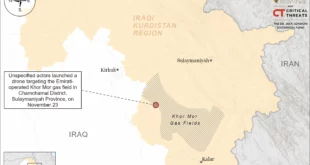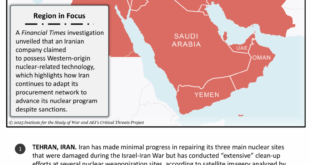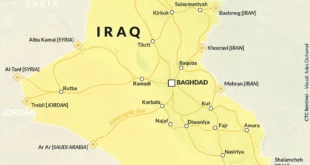 TEHRAN (FNA)- The US steers clear of the issue of illegal Israeli settlements by putting Iranian President Mahmoud Ahmadinejad on the spotlight.
TEHRAN (FNA)- The US steers clear of the issue of illegal Israeli settlements by putting Iranian President Mahmoud Ahmadinejad on the spotlight.
Arab countries on Friday called on the United Nations Security Council to revive the Middle East peace process, which has been stonewalled over the illegal Israeli settlement expansions in Palestinian territories.
US Secretary of State Condoleezza Rice, however, tacitly justified the expansion, suggesting that Palestinians will not see peace in the near future.
“Just one year ago, there was no peace process,” Rice said according to a press tv report, adding that the UN Security Council should avoid the issue of Israel and discuss Iran if it seeks to talk about world threats.
She explained that the Iranian president says “another member of this body should be wiped from the map, should not exist… That should not be allowed”.
Rice was commenting on remarks by President Ahmadinejad, who said that the ‘Israeli regime’ should not exist. Western politicians and media outlets have interpreted his remarks as a signal that Iran intends to develop nuclear weapons.
In a recent press tv interview, however, Ahmadinejad addressed the issue and explained that he was referring to the Israeli government and not the Palestinian lands occupied as a result of the Zionist movement.
“Where is the Soviet Union? The Soviet Union has been wiped off the map. What happened to the Soviet Union? The decision of the people, the vote of the people. When the people of the Soviet Union, the Russian people, were allowed to decide to take charge of their destiny, the Soviet Union disappeared,” the Iranian president said.
US calls for the UN Security Council to avoid the issue of Israeli atrocities follow years of Washington support for Tel Aviv.
Various UN Security Council resolutions condemning Israeli actions against Palestinians have been defied by Israel. The US has been a partner in Israeli crimes with its use of veto powers to prevent the adoption of 42 anti-Israeli resolutions sought by the council since 1972.
The exercise of veto powers by the US has led to a continuation of rocket launches by Tel Aviv into the strip, causing the death of a large number of civilians.
After declaring the strip ‘a hostile entity’ in September 2007, Israel curtailed travel into Gaza and cut fuel and electricity supplies to the region.
As Gaza depends upon external healthcare systems for the provision of a broad range of medical treatments, the Israeli imposed military blockade forced chronically ill and terminal patients to desperately seek passage out of the coastal strip.
Physicians for Human Rights-Israel released a report in August, titled Holding Health to Ransom, exposing ‘the methods of coercion’ Israel has employed to pressure Gazans and to spy on the strip.
According to the report, the regime prevents such patients from leaving Gaza to receive medical treatment unless they can provide desired information about their relatives.
Medical treatment for ‘the most helpless members of society’, reads the report, ‘is explicitly or implicitly made contingent upon collaboration’ with Israel on a ‘regular’ basis.
“I decide and set the rules, and you’ll see that if you do as I say, I’ll let you go to Ichilov Hospital,” the report quotes an interrogator as telling a patient. “It depends if you accept my demands.”
The situation in Gaza is such that Iran has on numerous occasions called on the United Nations to stop the ‘collective punishment’ imposed on Palestinians. Tehran also demands the enforcement of UN resolutions against Tel Aviv.
Israeli and US officials, however, have managed to justify the crimes committed against the Palestinians by dismissing world concerns over the issue as a sign of ‘anti-Semitism’.
The viewpoint of the Arab world, however, is that Palestinians have suffered from the Israeli occupation for over sixty years and urgently await action.
“A definite end must be put to settlement diplomacy,” said Palestinian Authority Chief Mahmoud Abbas.
“We are not asking for anything that was not promised by the Israelis themselves, including at Annapolis,” said Saudi Prince Saud Al-Faisal.
Feelings of despair and frustration have reached a dangerously high level. The growing perception in the Arab and Muslim world that there is a lack of seriousness on the part of the international community on this matter must be addressed,” he continued.
 Eurasia Press & News
Eurasia Press & News


